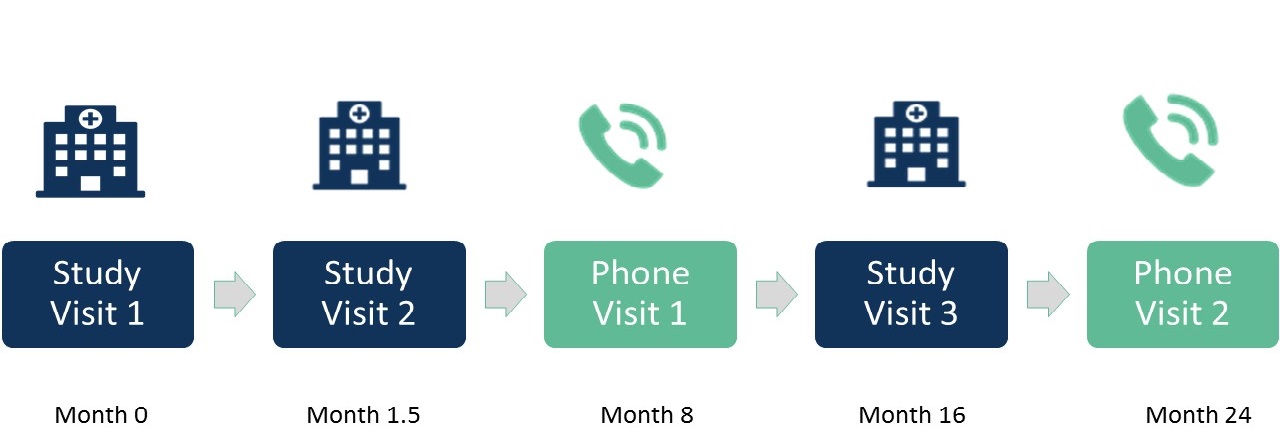Why is the research being done?
Alzheimer’s disease (AD) is a common problem in older adults with Down syndrome. More than half of all people with Down syndrome develop AD. AD causes changes in the brains that make it difficult to remember and do things that are a part of everyday life. AD is progressive and leads to deterioration in functioning as time goes on.
In AD, changes can start in the brain 15-20 years before the problems with memory and functioning (ability to do everyday things) begin. If we can tell if someone is at risk – before changes in the brain cause problems – we might be able to help prevent AD or make the problems less severe.
Everyone with Down syndrome has an extra copy of chromosome 21 (Trisomy 21). This chromosome has the gene coding for the protein involved in AD (amyloid protein).

Because people with Down syndrome have an extra chromosome, their brains produce excess amyloid protein and are thus they are more likely to develop AD at earlier ages.
Individuals who join the Trial-Ready Cohort will also be invited to participate in clinical treatment studies to test different investigational drugs that may prevent or slow down the changes in the brain caused by Alzheimer’s Disease. We hope that the Trial-Ready Cohort will shorten the time it takes to find participants to join these important prevention studies.
How long is the study?
The participant will be in the study for about 2 years. During the 2 years participants will have 3 study visits at the research site and 2 visits that will take place over the phone.











